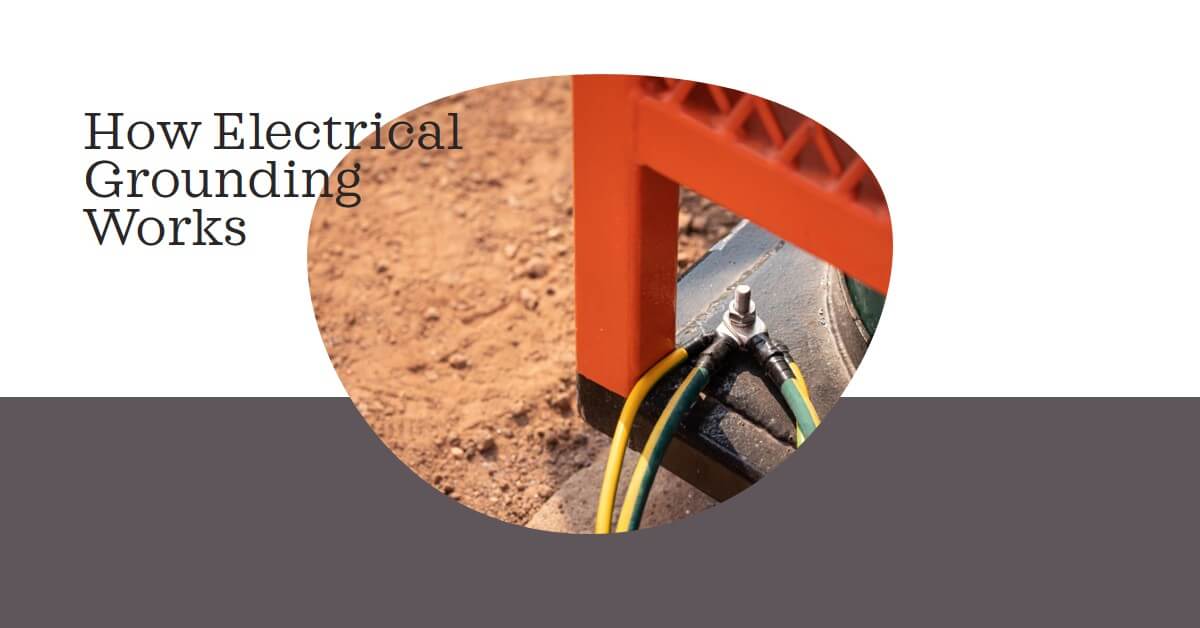Image: “Article Feature Image” by Bing is licensed under CC BY-NC-SA 4.0. Source: Bing Graphic Art. License: CC BY-NC-SA 4.0.
Electrical safety is an essential aspect of any electrical system. Electrical shock can occur due to various reasons, and grounding is one of the most important ways to prevent electrical shock.
Grounding is the process of connecting an electrical device or system to the earth through a conductor, which provides a path for electric current to flow into the ground.
In this article, we will explore the science behind grounding and how it can prevent electrical shock.
What is Electrical Shock?
Electrical shock is the physiological reaction to an electric current passing through the human body.
Electric current always seeks the easiest path to the ground, and if the human body is in the path, the current will flow through the body, causing electric shock.
The severity of electric shock depends on several factors, including the voltage, current, and duration of exposure.
Electric shock can cause burns, muscle contractions, seizures, and even death in severe cases.
How Does Grounding Work?
Grounding works by providing a path of least resistance for electric current to flow into the ground.
When an electrical system is grounded, any excess current flows through the ground instead of the human body or other objects.
The ground acts as a safety net that can absorb excess current and protect people from electric shock.
Grounding also helps to stabilize electrical systems by maintaining a constant voltage reference.
Without grounding, electrical systems can become unstable and fluctuate in voltage, which can cause damage to equipment or even start a fire.
Grounding provides a reference point for voltage, which helps to maintain a stable electrical system.
Read also my article: Don’t Take Electrical Safety for Granted: The Benefits of Grounding and Bonding.
Types of Grounding Systems
There are several types of grounding systems, including system grounding, equipment grounding, and ground fault circuit interrupter (GFCI) protection.
System grounding involves connecting the neutral wire of an electrical system to the earth ground.
This type of grounding is essential to ensure that the system is at the same potential as the earth.
System grounding is typically done at the transformer, which steps down the voltage from the utility grid to a lower voltage suitable for use in homes and buildings.
Equipment grounding involves connecting metal parts of electrical equipment to the earth ground.
This type of grounding provides a safe path for current to flow in the event of a fault, such as a short circuit.
Equipment grounding is typically done by connecting a grounding conductor to the metal casing of the equipment.
GFCI protection is a type of electrical protection that detects ground faults and quickly shuts off the electrical current.
This type of protection is commonly used in areas where electrical devices are likely to come into contact with water, such as bathrooms and kitchens. GFCI protection can prevent electric shock and save lives.
Benefits of Grounding
Grounding provides several benefits, including preventing electrical shock, protecting electrical equipment, and improving electrical system performance.
- Preventing electrical shock is the primary benefit of grounding.
By providing a path for excess current to flow into the ground, grounding can prevent electric shock.
Grounding is especially important in areas where people are likely to come into contact with electrical equipment or appliances.
- Grounding also protects electrical equipment from damage.
Without grounding, electrical equipment can become damaged due to voltage surges, lightning strikes, or other electrical disturbances.
Grounding provides a path for excess current to flow into the ground, which can protect electrical equipment from damage.
- Grounding can also improve the performance of electrical systems.
By maintaining a stable voltage reference, grounding can help to prevent voltage fluctuations that can damage electrical equipment.
Grounding can also help to reduce electrical noise and interference, which can improve the performance of sensitive electronic devices.
Grounding in Different Settings
Grounding is important in all settings, including residential, commercial, and industrial settings.
In residential settings, grounding is required by code for all electrical systems. Grounding protects homeowners from electrical shock and helps to ensure that electrical systems operate safely and efficiently.
In addition, GFCI protection is required in areas where electrical devices are likely to come into contact with water, such as bathrooms and kitchens.
In commercial settings, grounding is especially important for protecting employees and customers from electrical shock.
Grounding is required by code for all electrical systems, and GFCI protection is required in areas where electrical devices are likely to come into contact with water.
In addition, electrical systems in commercial settings often require additional protection, such as surge protection and grounding for sensitive electronic equipment.
In industrial settings, grounding is essential for protecting workers and equipment from electrical hazards.
Grounding is required by code for all electrical systems, and additional protection, such as explosion-proof equipment and grounding for lightning protection, may be necessary.
In addition, electrical systems in industrial settings often require regular inspections and maintenance to ensure that they are operating safely and efficiently.
Electrical Safety Tips
In addition to grounding, there are several other electrical safety tips that can help to prevent electrical shock and keep people safe around electrical systems.
First, it is important to avoid touching electrical equipment or appliances with wet hands or when standing on wet surfaces. Water is a good conductor of electricity, and touching electrical equipment or appliances with wet hands can increase the risk of electrical shock.
Second, it is important to never attempt to repair electrical equipment or appliances unless you are a qualified electrician. Tampering with electrical equipment can be dangerous and can increase the risk of electrical shock or fire.
Third, it is important to never overload electrical circuits or outlets. Overloading can cause electrical systems to overheat, which can increase the risk of fire or electrical shock.
Fourth, it is important to ensure that all electrical systems and appliances are properly grounded and that GFCI protection is installed in areas where electrical devices are likely to come into contact with water.
Conclusion
Grounding is an essential aspect of electrical safety that can prevent electrical shock and protect electrical equipment.
By providing a path of least resistance for electric current to flow into the ground, grounding can protect people and equipment from electrical hazards.
Grounding is required by code for all electrical systems and is essential in all settings, including residential, commercial, and industrial settings.
By following electrical safety tips and ensuring that all electrical systems are properly grounded, we can help to prevent electrical shock and keep people safe around electrical systems.
you work With Electricity! Don’t leave empty-handed!
Looking to stay ahead of the game in the world of electrical engineering? Subscribe to my YouTube channel and gain access to exclusive content you won’t find anywhere else!
The staff I recommend (Amazon Affiliate Links to products I believe are high quality):
- Economy 120 Volt/60Hz AC Power Source – Step-Down Voltage & Frequency Converters 1800W
- UNI-T Digital Multimeter Tester UT139C
- 50-Amp Extension Cord for RV “100ft”
- Voltage Stabilizer 110/220v
- Hair Dryer “best selling“
- TOSHIBA EM131A5C-BS Countertop Microwave Ovens
Disclaimer: This contains affiliate links to Amazon products. I may earn a commission for purchases made through these links.



